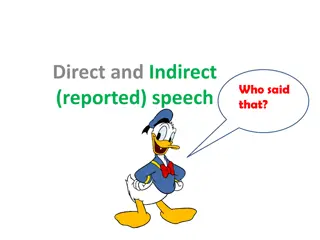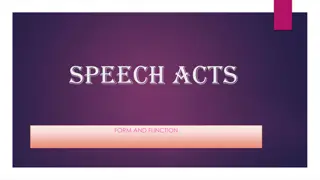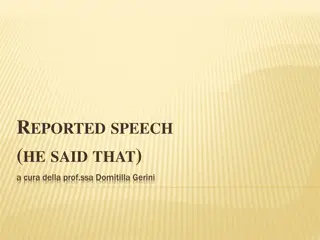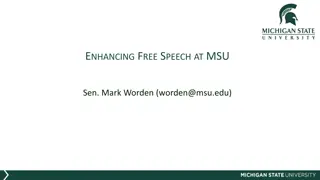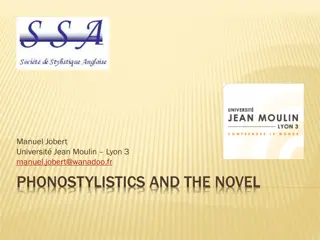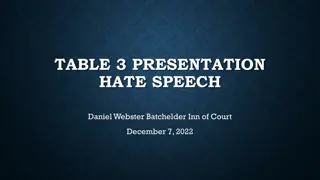The Five Categories of Speech Acts Explained
Speech acts are divided into five categories: Verdicatives, Exercitives, Commisives, Behavitives, and Expositives. Verdicatives involve giving a verdict, Exercitives give a decision on a course of action, Commisives involve committing to an obligation, Behavitives are used in communication activities, and Expositives are used in acts of exposition like defining and explaining.
Download Presentation

Please find below an Image/Link to download the presentation.
The content on the website is provided AS IS for your information and personal use only. It may not be sold, licensed, or shared on other websites without obtaining consent from the author. Download presentation by click this link. If you encounter any issues during the download, it is possible that the publisher has removed the file from their server.
E N D
Presentation Transcript
The broad categories of speech acts THE FIVE TYPES OF SPEECH ACTS
Speech acts are divided into five categories 1. verdivtives 2. exercitives 3. commissives 4. behavitives 5. expositives
Verdicatives Speech acts that are typified by the giving of a verdict, as the name implies, by a jury, arbiter or umpire. They are judicial acts, giving one s appraisal or assessment of one s character or to convey one s finding regarding a situation or an event. They tell us about the speaker giving a verdict about something. Examples: acquit assess estimate rate value read it as
exercitives Speech acts that give a decision in favor of or against a course of action. They differ from verdictives because they don t give a judgment that it is so ;they give a decision that something is to be so.They are not estimation but they are advocacy an award which is opposed to assessment they are just sentences not verdicts. They typify the execution of a decision. They tell us about the implementation of the verdict into action. Ex: Appoint Dismiss Fine Advise Name Warn Announce Pray Claim Pardon order
The difference between a verdict act and an exercitive act I find him suitable for appointment. (verdict) I appoint him. (exercitive)
commisives Speech acts that involve assuming an obligation or committing to a course of action. They either tell us that the speaker has undertaken to do something such as promise, vow, undertake or they tell us that the speaker has declared his intention to do something such as mean to, propose to, intend to, plan to .
Behavitives Speech acts that are used in communication activities like welcoming, thanking, apologizing, blessing, and cursing. By using these speech acts , the speaker responds to people's past or present conduct or their fortune, misfortune, etc. Ex: apologize Applaud Welcome Curse Bless Thank toast
expositives Speech acts that are used in acts of exposition like defining, elaborating, explaining, and the like. They involve the expounding of view, the conducting of arguments, and the clarifying of usages and of references. Ex: State Deduce Explain Define Illustrate classify
A summary Austin (1962) summarizes these five categories by saying: The verdictive is an exercise of judgment, the exercitive is an assertion of influence or exercising of power, the commissive is an assuming of obligation or declaring of an intention , the behavitives is the adopting of an attitude and the expositve is the clarifying of reasons, arguments and communications.
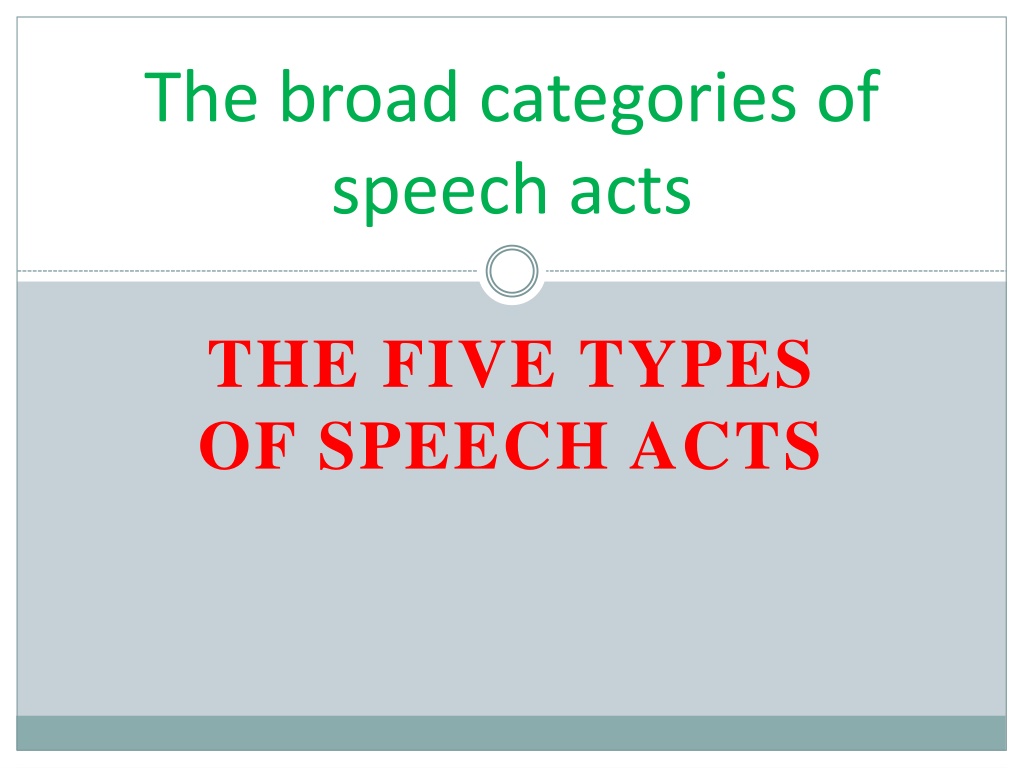

![Prevention and Combating of Hate Crimes and Hate Speech Bill [B.9B.2018]](/thumb/60513/prevention-and-combating-of-hate-crimes-and-hate-speech-bill-b-9b-2018.jpg)

